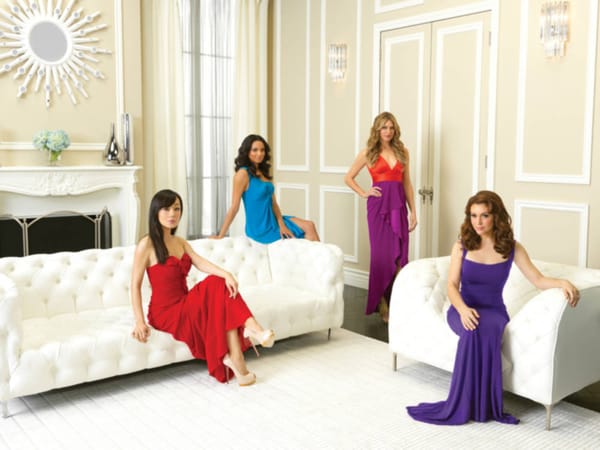The Blue Woman Group

Jasmine French (Blanchett) is a hard character for Imperial students to relate to: she’s rich, she wants to go into interior decorating, she knows nothing about finance, and she’s a woman. The film intercuts scenes from two periods of her life; one shows the ostentatious life she leads paid for by h
Blue Jasmine
Director: Woody Allen
Writer: Woody Allen
Starring: Cate Blanchett, Sally Hawkins, Bobby Cannavale, Louis C. K., Alec Baldwin
Runtime: 98 minutes
Rating: 3/4
Jasmine French (Blanchett) is a hard character for Imperial students to relate to: she’s rich, she wants to go into interior decorating, she knows nothing about finance, and she’s a woman. The film intercuts scenes from two periods of her life; one shows the ostentatious life she leads paid for by her banker husband Hal Francis (Alec Baldwin). The other happens after her husband is sent to prison for fraud and Jasmine finds that she is useless without him, or rather his money. She’s then forced to move in with her sister Chili (Cannavale) and live modestly while she tries to get her old life back. Meanwhile, Chili has trouble with her many relationships (something Imperial students will also have trouble relating to). It’s one of Woody Allen’s best abilities to make the audience identify with a character who would normally be overly irritating. Impressively, he does this here with every character. This establishes an interesting problem for the audience as we sympathise with everyone despite the fact that they all hate each other. Woody Allen directs a good cast, but in this case it’s his fantastic script that has to be credited for establishing convincing relationships between the film’s many characters quickly enough that the story keeps moving forward.
But the film’s success lies squarely on the strength of Cate Blanchett’s performance. She’s vapid, elitist, and self-absorbed and it’s these traits which make her entertaining to watch, but they aren’t so overpowering that it completely dehumanises her. In the end we -maybe not like her- but tolerate her and want her to turn her life around. It’s this subtle balance which makes the film. There are times though when the film feels like it is stuck and the characters’ development isn’t progressing, something that’s crucial in a film that’s exclusively about character development. Not that the film is too long but a couple of scenes, particularly in the last third of the film, could’ve been cut. Quirky characters (like a loveable sound engineer played by the brilliant Louis C.K.), funny dialogue, upper class white people drinking martinis... it’s a very Woody Allen film, but it’s also accessible. After a very bumpy ride with him over the past decade, his fans will appreciate it as one of his recent best though I fear that the level of his earlier work is sadly behind him now. For someone who isn’t familiar with his work, this is a very good place to start.









